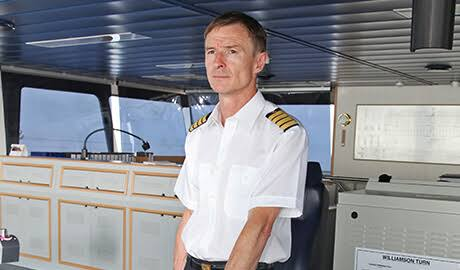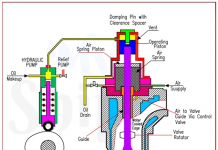
Title 2. Conditions of employment
Regulation 2.1 – Seafarers’ employment agreements
Regulation 2.2 – Wages
Regulation 2.3 – Hours of work and hours of rest
Regulation 2.4 – Entitlement to leave
Regulation 2.5 – Repatriation
Regulation 2.6 – Seafarer compensation for the ship’s loss or foundering
Regulation 2.7 – Manning levels
Regulation 2.8 – Career and skill development and opportunities for seafarers’ employment
Regulation 2.1 – Seafarers’ employment agreements
1. Each Member shall accept laws or regulations requiring that ships that fly its flag comply with the following requirements:
(a) seafarers working on the ships that fly its flag shall have a seafarers employment agreement signed by both the seafarer & the shipowner or a representative of the shipowner providing them with suitable working & living conditions on board the ship as required by this Convention;
(b) Those seafarers signing a seafarers employment agreement will be given a chance to examine & seek advice on the agreement before signing, as well as such other facilities as are compulsory to ensure that they have freely entered into an agreement with a sufficient understanding of their rights & responsibilities;
(c) the shipowner & seafarer concerned shall each have a signed original of the seafarers’ employment agreement;
(d) Actions will be taken to guarantee that clear details about the conditions of their employment can be easily obtained on board by seafarers, including the ship’s master, & that such information, as well as a copy of the seafarers’ employment agreement, is also accessible for review by officers of a competent authority, including those in ports to be visited; and
(e) seafarers will be given a document containing a record of their employment on board the ship.
2. Where the collective bargaining agreement(CBA) forms all or part of a seafarers employment agreement, a copy of that agreement will be available on board. Where the language of the seafarers employment agreement & any suitable collective bargaining agreement(CBA) is not in English, the following shall also be available in English (except for ships engaged only in domestic voyages):
Regulation 2.2 – Wages
1. Each & every Member are required that payments due to seafarers working on ships that fly its flag are made at no greater than monthly intervals & in accordance with any applicable collective agreement.
2. Seafarers will be given a monthly account of the payments due and the amounts paid, including wages, additional payments & the rate of exchange used where payment has been made in the currency or at a rate different from the one agreed to.
3. Each Member are required that shipowners take actions, such as those set out in paragraph 4 of this Standard, to provide seafarers with a means to transmit all or part of their earnings to their families or dependents or legal beneficiaries.
4. Actions to assure that seafarers are able to transmit their earnings to their families include:
(a) a system for enabling seafarers, at the time of their entering employment or during it, to allot, if they so desire, a proportion of their wages for payment at regular intervals to their families by bank transfers or similar means; &
(b) a requirement that allotments should be remitted in due time and directly to the person or persons nominated by the seafarers.
5. Any fee for the service under paragraphs 3 & 4 of this Standard will be reasonable in amount, and the rate of currency exchange, unless otherwise provided, shall, in accordance with national laws or regulations, be at the prevailing market rate or the official published rate and not unfavourable to the seafarer.
Regulation 2.3 – Hours of work and hours of rest
1. Authorities shall take account of the danger present by fatigue of seafarers, especially those whose duties involve the safe & secure operation of a ship.
2. All the persons who are appointed duty as officer in charge of a watch or as a rating forming part of a watch & those whose duties involve designated safety, prevention of pollution & security duties will be given with a rest period of not less than:
(a) minimum 10 hours of rest(relaxation) in any 24 hour period; &
(b) 77 hours in any 7-day period.
3. The hours of rest may be split into not more than two periods, one of which shall be at least 6 hours in length, and the intervals between consecutive periods of rest shall not exceed 14 hours.
4. The conditions for the rest periods written in paragraphs 2 & 3 need not be maintained in the case of an emergency or in other overriding operational conditions. Musters & drills instructed by national laws & by international instruments, will be conducted in a manner that minimizes the disturbance of rest periods & does not induce fatigue.
5. Authorities will require that watch schedules be posted where they are easily accessible. The schedules shall be accepted in a standardized format in the working language or languages of the ship and in English
Regulation 2.4 – Entitlement to leave
1. Each & every Member shall accept laws & regulations considering the minimum standards for annual leave for seafarers serving on ships that fly its flag, taking proper account of the significant needs of seafarers with respect to such leave.
2. Concerned to any collective agreement or laws or regulations assuming for an suitable method of calculation that takes account of the special needs of seafarers in this respect, the annual leave with pay allocation will be calculated on the basis of a minimum of 2.5 calendar days per month of employment. The method in which the length of service is calculated shall be determined by the capable authority or through the appropriate machinery in each country. Justified absences from work will not be treated as annual leave.
3. Any contract to waive the minimum annual leave with pay prescribed in this Standard, except in cases provided for by the competent authority, will be prohibited.
Regulation 2.5 – Repatriation
Purpose: To assure that seafarers are able to return home
1. Seafarers have a right to be repatriated at no cost to themselves in the circumstances & under the conditions specified in the Code.
2. Each & every Member will require ships that fly its flag to provide financial security to ensure that seafarers are duly repatriated in accordance with the Code.
Regulation 2.6 – Seafarer compensation for the ship’s loss or foundering
Purpose: To assure that seafarers are compensated when a ship is lost or has foundered
1. Seafarers are allowed to sufficient compensation in the case of injury, loss or unemployment arising from the ship’s loss or foundering.
Standard A2.6 – Seafarer recompense for the ship’s loss or foundering
1. Each & every member will make rules ensuring that, in every case of loss or foundering of any ship, the shipowner shall pay to each seafarer on board an insurance against unemployment resulting from such loss or foundering.
2. The rules referred to in paragraph 1 of this Standard shall be without prejudice to any other rights a seafarer may have under the national law of the Member worried for losses or injuries arising from a ship’s loss or foundering.
Guideline B2.6.1 – Calculation of indemnity against unemployment
1. The indemnity against unemployment resulting from a ship’s foundering or loss should be paid for the days during which the seafarer remains in fact unemployed at the same rate as the wages payable under the employment agreement, but the total indemnity payable to any one seafarer may be limited to two month
2. Each Member should ensure that seafarers have the same legal remedies for recovering such indemnities as they have for recovering arrears of wages earned during the service.
Regulation 2.7 – Manning levels
1. Each & every Member will require that all ships that fly its flag have a sufficient number of seafarers on board to ensure that ships are operated safely, efficiently and with due regard to security. Every ship shall be manned by a crew that is adequate, in terms of size and qualifications, to ensure the safety and security of the ship and its personnel, under all working conditions, in line with the minimum safe manning document or an equivalent issued by the competent authority, and to comply with the standards of this Convention.
2. When deciding manning levels, the competent authority shall take into account the need to avoid or minimize excessive hours of work to ensure sufficient rest and to limit fatigue, as well as the principles in applicable international instruments, especially those of the International Maritime Organization, on manning levels.
3. When deciding about manning levels, the authorized authority will consider all the requirements within Regulation 3.2 and Standard A3.2 concerning food & catering.
Regulation 2.8 – Career and skill development and opportunities for seafarers’ employment
Purpose: To promote career & skill development & employment opportunities for the seafarers
1. Each & every member will have internal procedures to assist employment in the maritime sector and to encourage career & skill development & greater employment opportunities for seafarers domiciled in its territory.
2. Each Member shall have national policies that encourage career and skill development and employment opportunities for seafarers, in order to provide the maritime sector with a stable and competent workforce.
3. The aim of the policies referred to in paragraph 1 of this Standard shall be to help seafarers strengthen their competencies, qualifications & employment opportunities.



